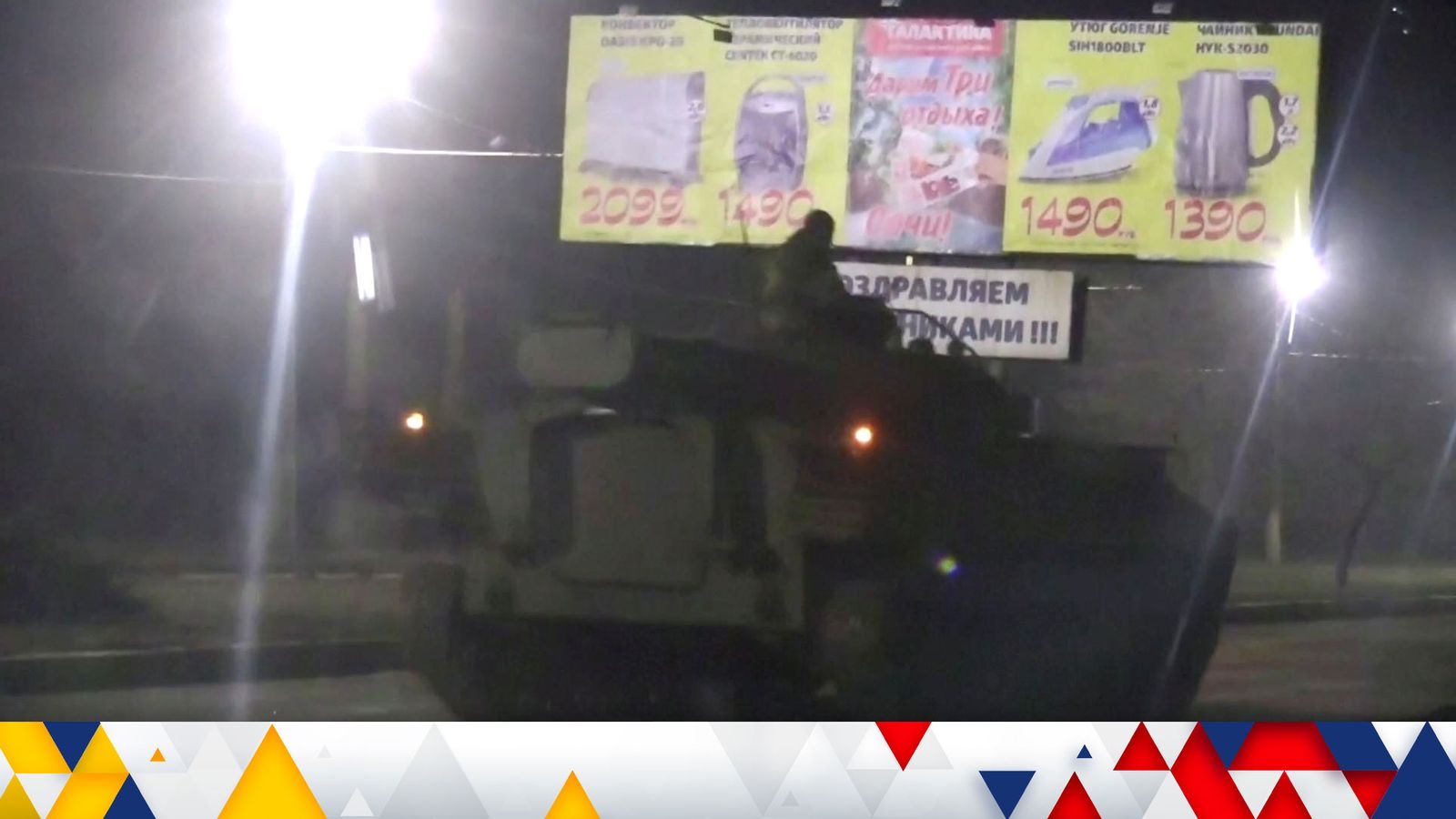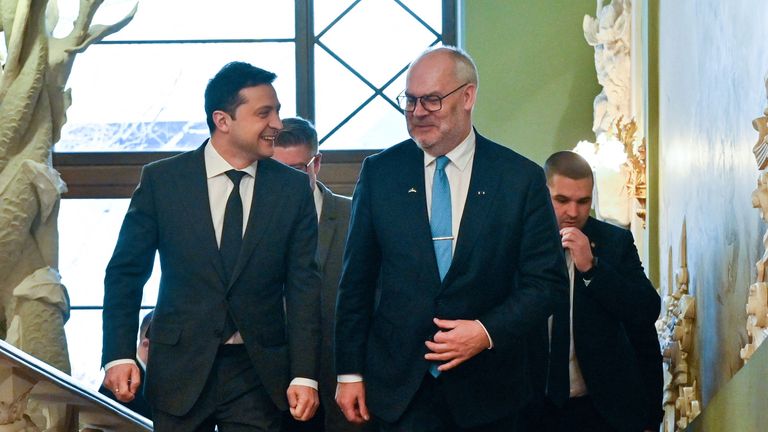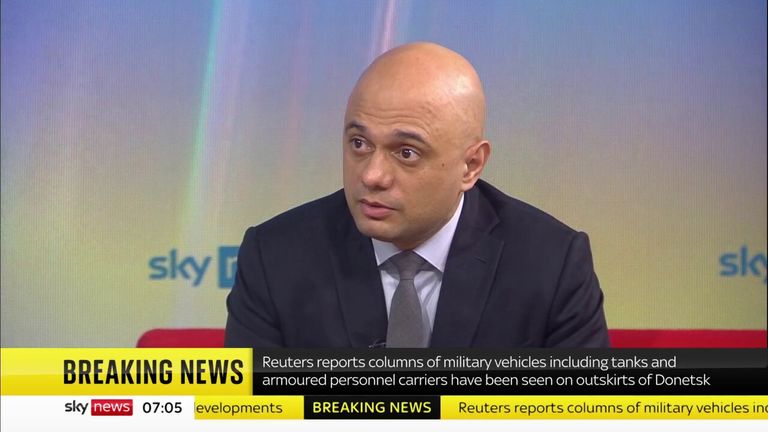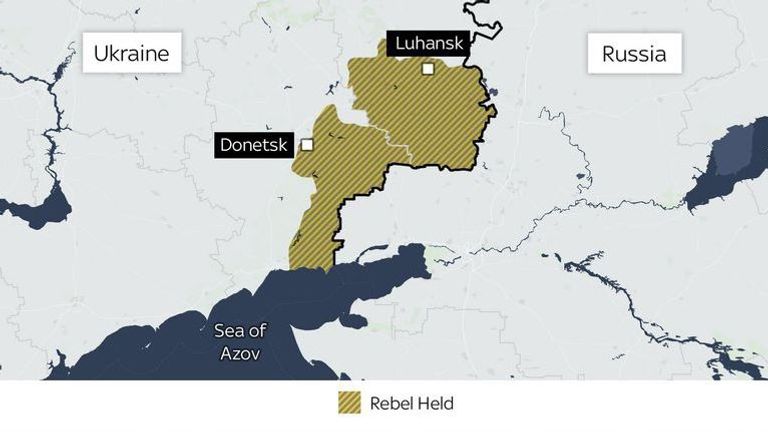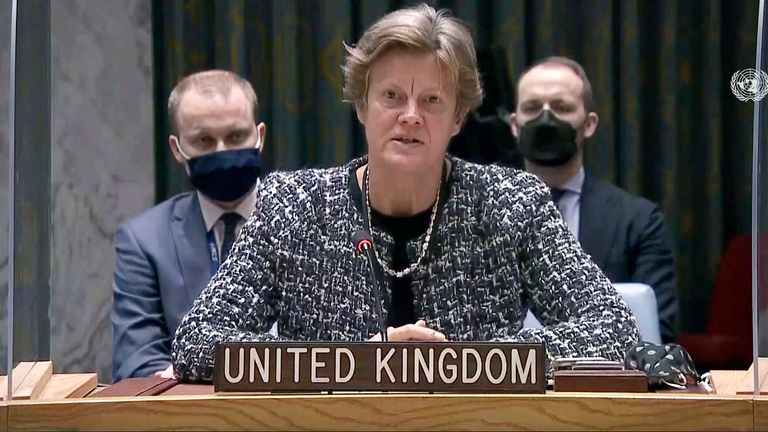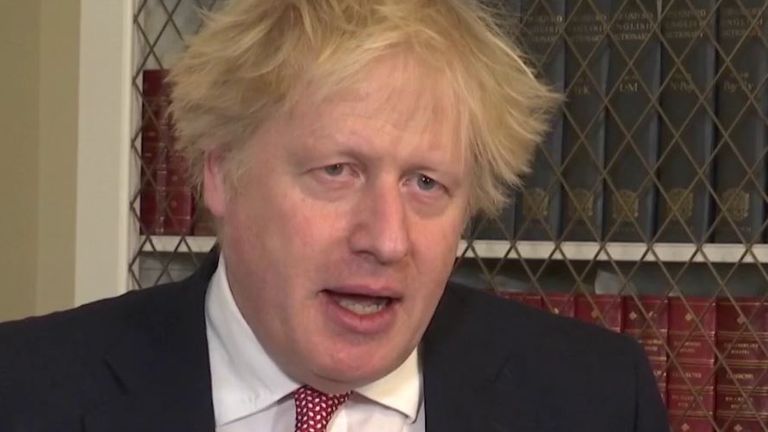Ukraine’s president has said the country is considering breaking off diplomatic relations with Russia after tanks were reportedly seen on the outskirts of Donetsk, the capital of one of two breakaway regions in the east.
Speaking alongside his Estonian counterpart, President Volodymyr Zelenskyy said he was weighing a request from his foreign ministry to break off ties with Moscow.
“I’ve received a request from the foreign ministry. I will consider the issue of severing diplomatic relations between
Ukraine and the Russian Federation. Immediately after our press conference, I will consider this issue,” Mr Zelenskyy said.
The foreign ministry said it had recalled a senior Ukrainian diplomat from Moscow for consultations.
‘Invasion has begun’ UK says – latest updates as Ukraine crisis deepens
Ukraine key developments:
• PM pledges ‘first barrage’ of sanctions on Russia
• International condemnation at UN Security Council as Putin recognises independence of separatist regions
• Germany halts approval of Nord Stream 2 gas pipeline
• EU and US also ready to impose sanctions
He also urged Ukraine’s allies not to wait for a further escalation to impose sanctions, which should include shutting
down the Russian-led Nord Stream 2 gas pipeline.
Mr Zelenskyy played down the prospect of a large-scale conflict with Russia but said he was prepared to introduce martial law if that happened.
The reported appearance of the military vehicles came hours after Vladimir Putin signed friendship treaties with the two separatist regions and ordered Russian troops to deploy on what Moscow called a peacekeeping operation.
Reuters reporters in Donetsk had not seen tanks on the streets in previous days.
Video shot by Reuters at Makiivka, near Donetsk shows various military vehicles including APCs and trucks on the road.
UK Health Secretary Sajid Javid told Sky News this morning: “We are waking up to a very dark day in Europe.”
He told Kay Burley: “You can conclude that the invasion of Ukraine has begun.”
Prime Minister Boris Johnson then confirmed the UK was set to hit Russia with a “first barrage” of sanctions.
Foreign Secretary Liz Truss said Russia’s ambassador Andrei Kelin had been summoned “to explain Russia’s violation of international law and disregard of Ukraine’s sovereignty”.
“We are imposing severe sanctions in response,” she added.
Russia ‘open to diplomacy’
Overnight the United Nations Security Council met in New York to discuss the situation.
Barbara Woodward, the UK’s ambassador to the UN, told members that Russia’s actions would have “severe and far-reaching consequences” for human life, the territorial integrity of Ukraine, and for international law.
But Russia’s ambassador to the UN, Vassily Nebenzia – who is also the president of the council – described the speeches as “emotional” and a “direct verbal assault”.
He said: “We remain open to diplomacy for a diplomatic solution, however, allowing a new bloodbath in the Donbas is something we do not intend to do.
He blamed Ukraine for using “bellicose rhetoric” and “doing everything it could to sabotage and destroy” the Minsk agreement “with the backing of our western colleagues”.
He also noted the “extremely negative role played by our western colleagues, especially the US”, who he accused of “egging Ukraine on”.
Ukraine’s ministry of foreign affairs said in a statement that Russia had “blatantly defied the fundamental norms and principles of international law” by recognising the two regions.
“The Russian Federation’s decision to recognise the so-called “Luhansk People’s Republic” and “Donetsk People’s Republic” will have no legal implications,” it said.
EU envoys to discuss sanctions
EU member states’ ambassadors will meet this morning to discuss possible sanctions against Russia.
But Russian Foreign Minister Sergei Lavrov has brushed off the threat of sanctions.
“Our European, American, British colleagues will not stop and will not calm down until they have exhausted all their
possibilities for the so-called ‘punishment’ of Russia,” he said.
“They are already threatening us with all manner of sanctions or, as they say now, ‘the mother of all sanctions’.
“Well, we’re used to it. We know that sanctions will be imposed anyway, in any case. With or without reason.”
Read more:
Officials in Russian-backed regions press-gang older men into their militias
How big is Russia’s military – and how does it compare with Ukraine?
Speaking at the Joint Expeditionary Force defence ministerial meeting, UK Defence Secretary Ben Wallace said: “It’s incredibly serious what’s happening in Ukraine.
“Many of us were forewarning that President Putin already had an agenda – you heard that agenda in his speech last night.
Follow the Daily podcast on Apple Podcasts, Google Podcasts, Spotify, Spreaker
“This is a sovereign state which has now had some of its land effectively annexed from it.
“This is a sovereign state, a democratic state in Europe. All of us in Europe should worry and not hesitate to take whatever action we need to to deter President Putin from undermining both NATO, but also Europe and, more importantly, our values.”
